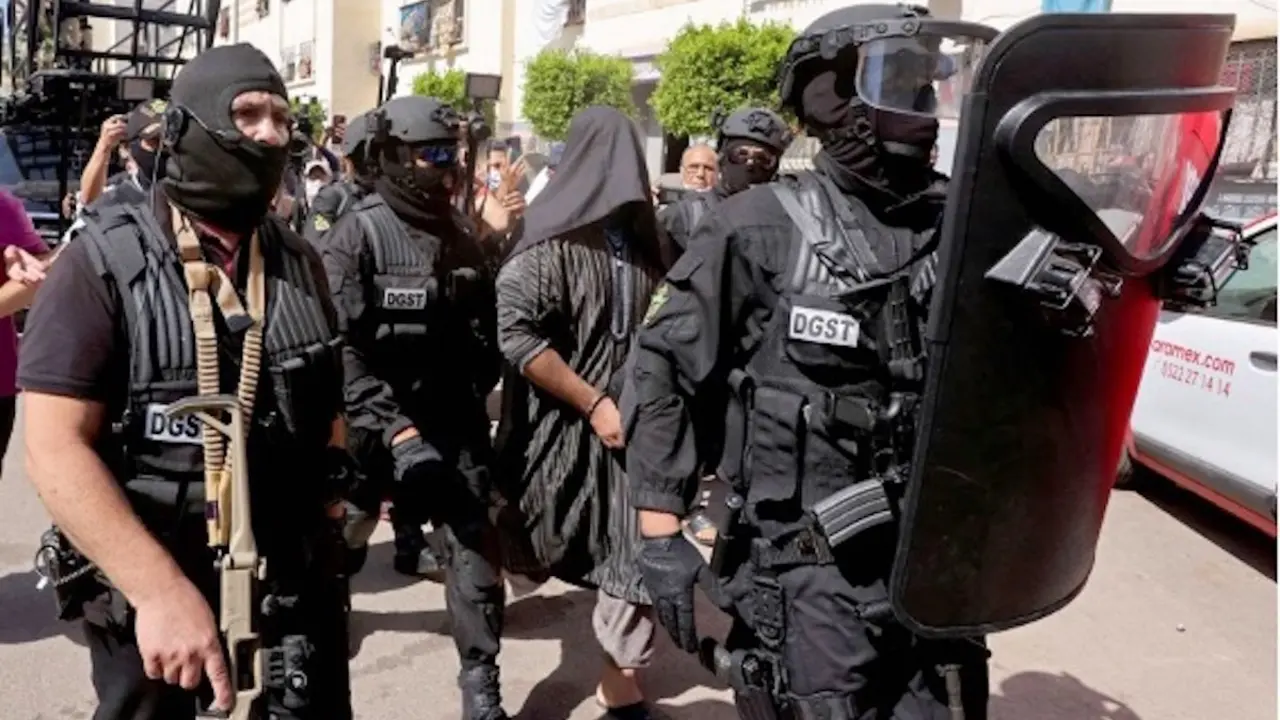Bashagha visits Turkey to unblock political crisis in Libya

Fathi Bashagha, prime minister appointed by the Tobruk House of Representatives, made a surprise visit to Turkey on Wednesday. The Libyan politician reportedly went to the country after receiving an official invitation, according to Asharq al-Awsat. This would be his second visit to Ankara in office.
His aim is to seek the support of Turkish President Recep Tayyip Erdoğan in his political struggle with Abdul Hamid Dbeibé, Prime Minister of the UN-recognised Libyan National Unity Government.

The GNU is the interim government that emerged from the UN-led peace process following the signing of a ceasefire in late 2020. This agreement halted hostilities between forces loyal to Fayez al-Sarraj's Government of National Accord, based in Tripolitania, and Marshal Khalifa Haftar's Libyan National Army, itself associated with the House of Representatives, chaired by Aguila Saleh, both based in Cyrenaica.
All of them were fighting to fill the vacuum created by the fall of Muammar al-Gaddafi's government in 2011, in the context of the so-called Arab Spring and triggered by an international intervention sanctioned by the UN Security Council.
This conflict was heavily internationalised. Qatar and Turkey supported Al-Sarraj, who had connections with the Muslim Brotherhood, while the United Arab Emirates, France, Egypt and Russia supported Haftar and Saleh.

The peace process was aimed at establishing a democratic unity government, breaking the confrontation between the east and west of the country and putting an end to an 11-year conflict. Under the agreement reached by the parties, presidential and parliamentary elections should have been held in December 2021. However, the lack of political will among the main actors in the country prevented the elections from being held.

Faced with political deadlock, on 10 February this year, the Tobruk-based House of Representatives, elected in the 2014 parliamentary elections, in which the west of the country had a low turnout, moved to appoint Bashagha as prime minister.
Bashagha, former Interior Minister of the Government of National Accord, has allied himself with both Haftar and Saleh, as well as with a coalition of several Tripolitanian militias, the Stabilisation Support Apparatus, all former rivals, who have nonetheless joined forces with a view to seizing power.

Dbeibé, for his part, condemned the move and said he would remain prime minister until national elections, which he plans to organise on 30 June.
The UN has not recognised Bashagha's election, but said it was the country's "sovereign decision". UN Secretary-General Antonio Guterres called on all parties to continue to preserve stability, stressing the need to organise national elections as soon as possible.

The political struggle came to a head last April, when military forces allied with Dbeibé entered Tripoli to oppose Bashagha's rise. Shortly before Bashagha's election, Dbeibé was allegedly the target of an assassination attempt. These moves threaten to re-establish a bicephaly in Libya on the basis of the east-west divide and jeopardise the end of the ceasefire after little more than a year.
Bashagha has since tried to tip the balance in his favour and gain external support, a context in which the visit to Ankara, one of the main players in the Libyan civil war, takes place.

Turkey intervened in the conflict in favour of the Government of National Accord in 2019, at a time of extreme weakness, with Haftar's forces at the gates of Tripoli. Ankara managed to turn the fighting around by supplying the Tripolitanian forces with weapons, Syrian soldiers and contractors, and intervened directly through its drones, particularly the now famous Bayraktar TB2, forcing Haftar to withdraw from Tripoli.

During the intervention, Bashagha positioned himself as one of Turkey's main allies in the country, establishing a relationship that he now hopes to use to gain Turkish support. "My relationship with Turkey is strong and we have a solid friendship," Bashagha told Alwasat TV in an interview. "Our relationship with the Turkish state has never been affected," Bashagha said.
However, for Turkey, which has so far avoided taking a position on the political controversy despite its strong relations with the Dbeibé government, Bashagha's alliance with Haftar, his bitter Libyan rival, who is also close to Moscow, Abu Dhabi and Cairo, might be difficult for Turkey to assimilate.

But since the end of hostilities, Ankara has sought to establish contacts with actors in the east of the country, as shown by its ambassador's meeting with Saleh with a view to reopening the Turkish Consulate in Benghazi, capital of Cyrenaica, which he also visited, and the re-establishment of direct air routes between eastern Libya and Turkey, seven years later.








